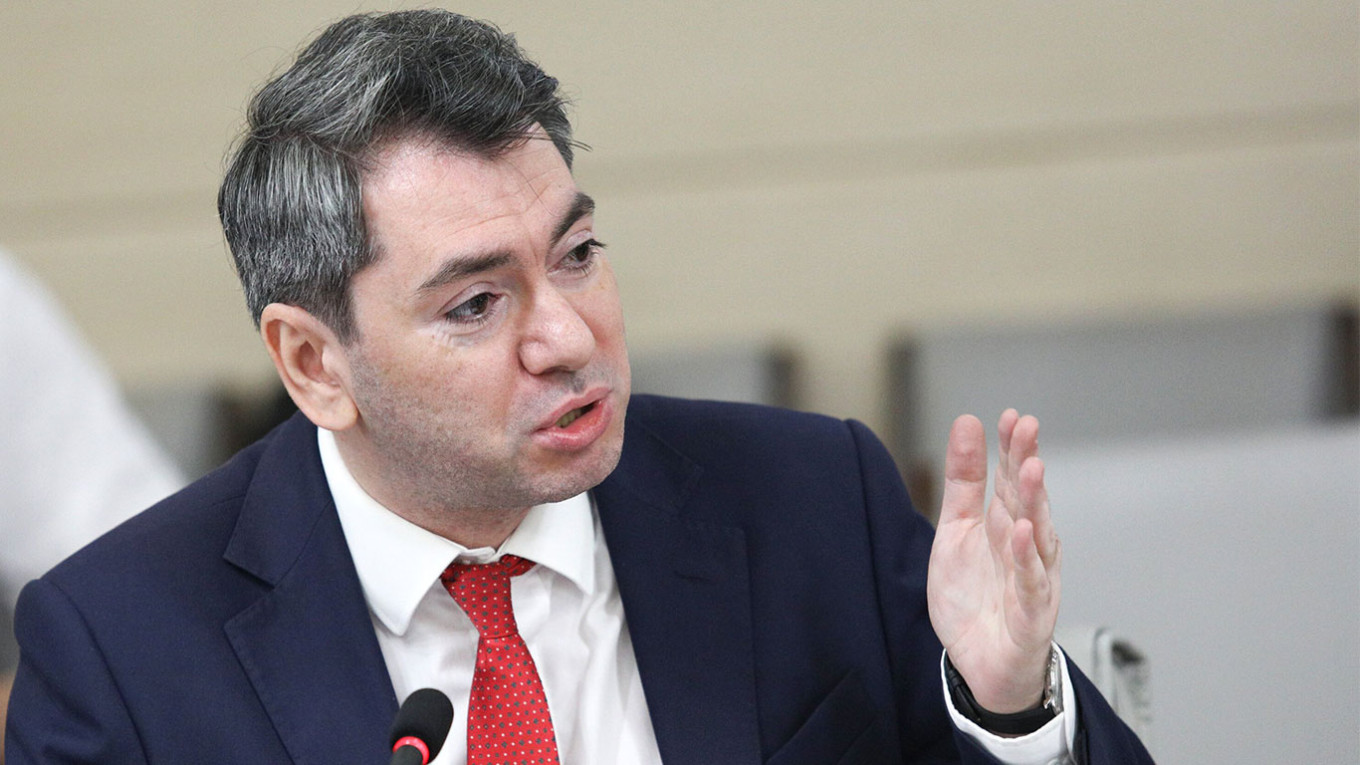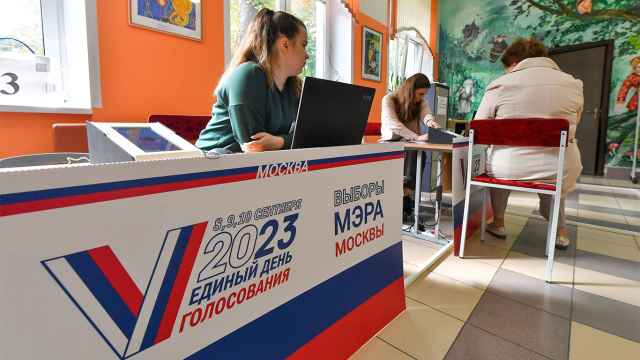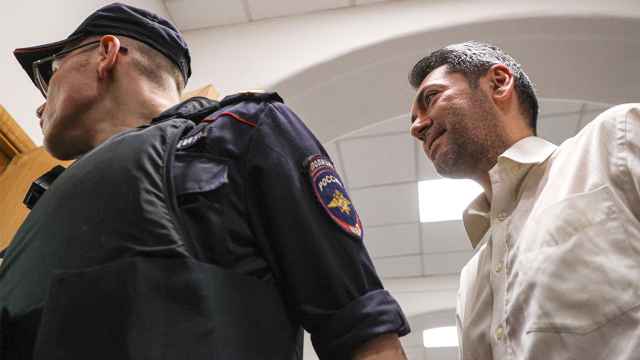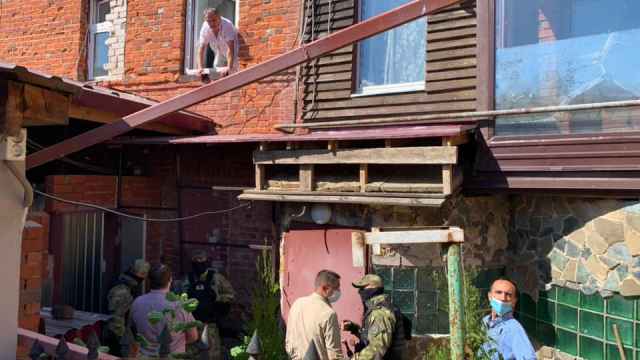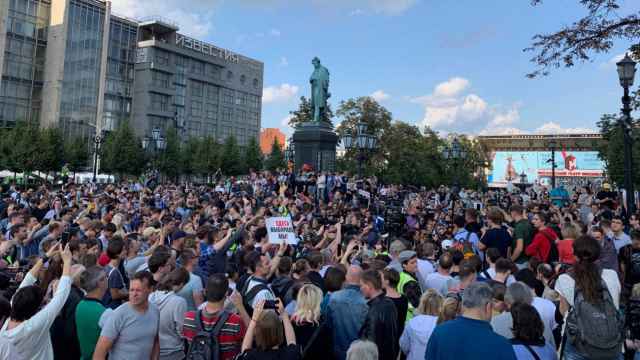An earlier version of this article, citing a report by Kommersant, incorrectly stated that Melkonyants was outside of Russia on Thursday. He is currently in Russia.
Updated to add details of Melkonyants' pre-trial arrest.
Russian authorities have charged the co-chair of the independent election monitor Golos for running an “undesirable” organization, state media reported Thursday, citing an anonymous source.
Law enforcement carried out searches at the homes of Golos co-chairman Grigory Melkonyants and 14 of his colleagues in Moscow, St. Petersburg and six other Russian regions, according to the news agency RIA Novosti.
The report did not say whether any arrests were made. A photo said to be taken during one of the searches showed badges with a Golos logo and a Ukrainian flag.
Golos has not been officially recognized as an "undesirable" organization by the Russian authorities.
Video published by RIA Novosti showed Melkonyants in his apartment during the searches on Thursday.
On Friday, a court placed Melkonyants in pre-trial detention until at least Oct. 17, a court spokesperson told AFP.
"By decision of the Basmanny District Court, a measure of restraint in the form of detention until Oct. 17, 2023, was chosen against the accused Grigory Melkonyants," the court said.
His lawyer told reporters he would appeal the decision.
Under Russian law, the penalty for “organizing the activities of an undesirable organization” is two to six years imprisonment.
Shortly after RIA Novosti published its report, Golos co-chair Stanislav Andreychuk told the independent broadcaster Dozhd that members of his organization are accused of cooperating with the Montenegro-based election monitoring civil society group ENEMO.
Golos cut ties with ENEMO, which combines election monitors from 18 Central and Eastern European countries, after Russia labeled it an “undesirable organization” in 2021, Andreychuk said.
Golos has regularly criticized the election processes in Russia since its founding in 2000.
Russia’s Justice Ministry added the election monitor’s various legal entities to its list of “foreign agents” in 2013, 2015 and 2021 for a range of infractions.
The latest reported criminal case targeting Golos comes less than a month ahead of elections in dozens of Russian regions, as well as in occupied Ukrainian territories, which Golos has projected to be one of the least competitive in years.
AFP contributed reporting.
A Message from The Moscow Times:
Dear readers,
We are facing unprecedented challenges. Russia's Prosecutor General's Office has designated The Moscow Times as an "undesirable" organization, criminalizing our work and putting our staff at risk of prosecution. This follows our earlier unjust labeling as a "foreign agent."
These actions are direct attempts to silence independent journalism in Russia. The authorities claim our work "discredits the decisions of the Russian leadership." We see things differently: we strive to provide accurate, unbiased reporting on Russia.
We, the journalists of The Moscow Times, refuse to be silenced. But to continue our work, we need your help.
Your support, no matter how small, makes a world of difference. If you can, please support us monthly starting from just $2. It's quick to set up, and every contribution makes a significant impact.
By supporting The Moscow Times, you're defending open, independent journalism in the face of repression. Thank you for standing with us.
Remind me later.


